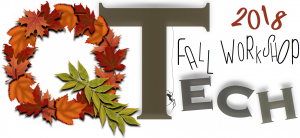
WHEN?
Every tuesday at 11:30 from 30th October to 18th December
MISSION
At the Quantum Technology Lab we perform theoretical and experimental research to develop new solutions using quantum technologies that will ultimately address real world problem, with a potential for disruptive change. QTL aims to contribute to solve problems in fundamental and applied science by using new tools based on quantum physics and quantum technologies and by building-up core competences for the wider exploitation of quantum science and technologies in mainstream engineering.
The purpose of QTFW program is to gather leading experimental and theoretical experts on various aspects of quantum optics and condensed matter physics to discuss the key issues in the understanding of the dynamics and manipulation of quantum information.
The program will highlight and attempt to unify a broad range of topics including quantum probing, quantum control, entanglement dynamics and quantum applications of machine learning. This will ultimately promote the development of new interdisciplinary techniques to understand the dynamics of quantum information in few- and many-body quantum systems.
COMMITTEES
Chaipersons: Claudia Benedetti and Matteo Bina
Scientific Advisors: Marco G. Genoni and Stefano Olivares
PROGRAM (download the flyer here)
- 30/10 – Chahan Kropf: How to preserve optimal measurements for state discrimination over any quantum channel
- 06/11 – Dario Tamascelli: Efficient simulation of finite-temperature open quantum systems
- 13/11 – Andrea Crespi: Investigation of quantum phenomena via femtosecond laser written photonic circuits
- 20/11 – Elena Ferraro: Spin qubits in semiconductor: single qubit gates and entanglement fidelities
- 04/12 – Edoardo Suerra: Generation of squeezed states via an actively stabilized optical cavity
- 11/12 – Simona Achilli: GeVn defects in silicon: a viable route towards room temperature quantum information technology
- 18/12 – Steve Campbell: Emergent classicality: Exploring quantum Darwinism with a collision model